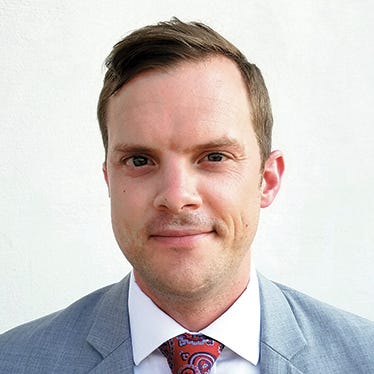Steve Lockshin's Vanilla Adds CEO, CTOSteve Lockshin's Vanilla Adds CEO, CTO
Digital estate planning developer Vanilla added a new CEO, CTO, and former Addepar executive to its leadership team.

Digital estate planning software developer Vanilla has added three new executives to its team as it seeks to grow its user base of advisors, according to an announcement. Former Smartsheet strategy and product executive Gene Farrell is joining Vanilla as chief executive officer, where he will be work alongside ex-Amazon Web Services (AWS) executive Amjad Hussain, who joins Vanilla as chief technology officer, and ex-Addepar executive Robin Melnick, Vanilla’s new senior vice president of revenue.
The C-suite hires signal a new chapter for the firm, founded by Steve Lockshin in 2019. Farrell will formally lead the firm, reporting to the Board of Directors, which includes Lockshin, Bill McNabb, the former chief executive at Vanguard, and Nick Beim, a partner at Venrock. Last year Vanilla secured $14.3 million in a Series A funding round led by Venrock, an investment also backed by NBA star Michael Jordan, who made his first direct investment in a fintech firm.
Farrell’s initial mandate will be scaling the firm’s engineering and development teams to support big clients, he said. Vanilla is in “pilot phases” with “some very large wirehouse [and] investment banks,” according to Farrell, who declined to provide more details on the nature of the pilot phase or the firms involved. The company currently counts approximately 25 employees on its payroll, a number Farrell predicts will double in the first half of 2022—with a “majority” of the hires in engineering and development.
Farrell will be working closely with Hussain, who he recruited away from AWS. The two worked together at AWS before Farrell left four years ago to head strategy and product at Smartsheet, a collaboration and work management tech company. Hussain worked for seven years at AWS prior to joining Vanilla.
There are similarities between the challenges he faced Smartsheet and those facing Vanilla today, said Farrell. When he started at Smartsheet, “collaborative work management” barely registered as a category of technology. He witnessed the company grow from generating $100 million in revenue to going public in 2018 and hitting revenue of $500 million, he said.
Similarly, the wealth management industry is misunderstanding the potential of estate planning, he said.
Estate planning represents $180 billion in value on an annual basis, said Farrell, with Vanilla estimating it could address approximately $20 billion of that market. “Advisors get the value prop, and they're hungry to provide better service to their clients,” he said. “We're just at a younger phase around getting the product built.”
Digitizing estate planning has proven to be a challenge. eMoney Advisor founder Edmond Walters announced a digital estate and legacy planning tool in 2019, called Apprise Labs, which was structured as a joint venture between Walters, MoneyGuide Pro parent firm PIEtech, and Envestnet, which subsequently acquired PIEtech.
Last year Envestnet took the intellectual property from the venture and rolled it into MoneyGuide as “Wealth Studios,” and exited the agreement. The major broker/dealer Walters was said to have signed to the tool was never publicly named and the tool was not mentioned in a 2021 announcement about Envestnet’s Trust Services Exchange.
“The estate planning industry is shrinking with advisors, as the estate tax limits are so high now,” said Tim Welsh, founder of consulting firm Nexus Strategy. “Really, only $20 [million in assets] and above—complex family situations—are focused on doing estate planning.”
“This is not a growth area,” he added, noting that his perspective was aligned with "the general consensus of the advisor technology industry."
Vanilla's new chief executive is far more bullish. Farrell expects digitization will help advisors provide estate and legacy planning for households with as little as $1 million in assets and for clients as young as 25 years old.
“We really think there is a life cycle to it,” said Farrell. “Something like two out of three people believe that they should have an estate plan and actually don't have one. That’s because they don't understand how to get started or they haven't prioritized it. We think this is a problem that is in desperate need of an easy solution that leverages technology.”







